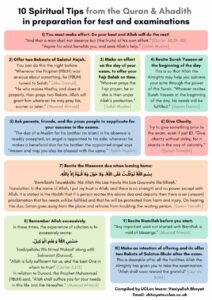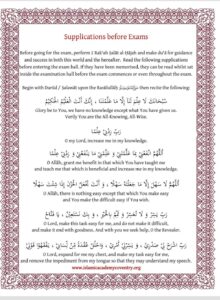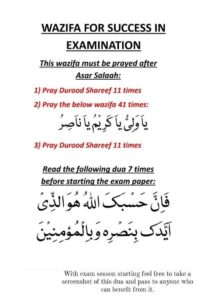http://productivemuslim.com/inspired-by-abdul-sattar-edhi/?utm_source=getresponse&utm_medium=email&utm_campaign=ProductiveMuslim+NewsLetter&utm_content=%5B%5Brssitem_title%5D%5D#utm_source=rss&utm_medium=rss&utm_campaign=inspired-by-abdul-sattar-edhi
 This is a story that carries many life lessons for all of us. The story of Abdul Sattar Edhi, and the legacy he left behind.
This is a story that carries many life lessons for all of us. The story of Abdul Sattar Edhi, and the legacy he left behind.
‘Edhi’ became a synonym for love, humanitarian service, and selflessness in Pakistan. He commanded respect from Pakistanis and from millions across the world. He won several prominent international prizes for his outstanding humanitarian services. He was nominated for the Nobel Prize several times. He was decorated with the Nishan-e-Imtiaz, which is the highest honor given to any civilian in Pakistan for their achievements towards world recognition of Pakistan or an outstanding service to the country.
News of his illness in the last few months made many Pakistanis pray wholeheartedly for his health. His death shocked many in the nation. He was given the state funeral attended by thousands of people, including the President, chiefs of military, navy and air force, a large number of politicians, diplomats, civil servants, businessmen, etc.
He was called an Angel of Mercy. Some thought he was the greatest living humanitarian. We know that the Edhi Foundation runs 330 welfare centers across Pakistan and more than 1500 ambulances. But we do not exactly know the number of people (which could be millions without exaggeration) who have directly and indirectly benefited from Edhi ambulances, food kitchens, rehabilitation homes, shelters for abandoned women and children, and clinics for the mentally handicapped. Edhi Foundation does not just operate in Pakistan, it has carried out relief operations in Africa, Middle East, the Caucasus region, Eastern Europe and the United States. Edhi never differentiated between people, their faith, race or color. He helped everyone who needed help. He humbly requested donations from everyone who could give. He changed the face of welfare work in Pakistan and established an organization which is trusted by everyone, poor and rich, illiterate and educated, Muslims and non-Muslims alike.
The purpose of this article is not to write a biographical account of Edhi’s life. Rather, I want to list some key qualities which made him the person he was. I want every one of us to learn from Edhi. I wish we can peek through his life and emulate some of his qualities and traits so that we can also reach out to the poor and needy in the way he did. I also hope our children would be inspired by his story, and be motivated to follow suit when they grow up.
Practical compassion
Edhi’s compassion drove him to help the helpless, give shelter to the homeless women, give a roof to the street children, feed the hungry, treat the sick and bury the dead… He himself drove an ambulance for 45 years and never drove any other car throughout his life. His heart was always with the needy and deserving and he was constantly thinking about how best to help those most in need. His compassionate heart has a lot to do with serving his own mother. She was paralyzed from a stroke when Edhi was only 11 years old. Looking after his mother and seeing her suffer inspired Edhi to develop services for the aged, immobile people, and physically challenged persons. His mother taught him selflessness also when she used to give him 2 paisas, one for himself and the other for a needy person on the street. This training to be compassionate at an early age had a lot to do with what Edhi became eventually.
Living a life of simplicity
Edhi lived a very simple life. He was known for his ascetic lifestyle. He never owned more than two pairs of simple clothes and shoes. He lived in a simple home with his family. His own office remained a small room with minimum furniture. He never drove any other car except the ambulance. He never took a salary from his foundation. He inculcated this trait in his wife and children who continue to live a life without frills. Edhi remained a focus of local and international media for decades, but this attention never got him distracted or carried away. He kept to his simplicity and true authentic self. This simplicity earned him a lot of respect among the masses.
Upholding a true sense of integrity
Being the largest charitable organization in Pakistan, Edhi Foundation attracted millions of dollars of donations. In its more than five decades of existence, Edhi Foundation never came under scrutiny for misappropriation of funds. Its volunteers, staff, and management are also inspired by Edhi’s own integrity, honesty, and trustworthiness. Edhi realized that maintaining his personal, as well as organizational integrity was central to the success of his humanitarian activities which entirely depended on donations.
Dedication to one’s mission
Edhi was a full-time humanitarian worker, organizer, and mobilizer. He dedicated his whole life to the welfare work. Such was the level of his dedication to the causes he supported that he paid no heed to any kind of threats or obstacles in his way. He was criticized by some fundamentalists for supporting babies born out-of-wedlock. His ambulances were attacked by some interest groups. But nothing could deter him from serving humanity.
Being patriotic
Edhi was a true patriot. He had migrated to Pakistan from India during the partition of 1947. He believed in the country he chose to live in. Such was the level of his patriotism that he chose to be treated only in Pakistan despite offers from many for treatment abroad. He wanted to live and die in the country he loved so much. He never took donations from anyone except Pakistanis. He believed that native people can solve the problems of their country, and he proved it through the work he did that he sought help only from Pakistanis to solve issues of Pakistanis.
Taking the means and being optimistic
Edhi was a true impatient optimist. He knew that several problems of our world can be solved if we start finding solutions. He started his foundation with a second-hand ambulance. He then felt that the aged who had no one to look after needed his support. He built nursing homes for the aged. He found that children born out-of-wedlock were left on the street without any support, so he went on to put baby cradles outside the Edhi Foundation Centers. He then noticed the misery of divorced women, single mothers, and financially challenged women. He built shelters for them. He started supporting the relief work locally, as well as internationally. Edhi kept on discovering social needs and found simple solutions. Lack of formal education never stood in his way. He was able to find solutions to the social problems as he was truly immersed in the communities and was living the experience of the poor every day.
Being trustworthy out-pours the funds
He never thought that scarcity of resources would be a constraint for his foundation which is involved in a range of humanitarian activities. In fact, resources poured in for every cause he touched. He just stood in the streets and people handed him small and big notes. Children gave him their pocket money. Women gave him their jewelry. Poor gave him their savings. Rich gave him their properties. Everyone donated to Edhi and his foundation. His simplicity, integrity, dedication, and patriotism greatly helped him raise funds from the people. More importantly, his foundation delivered results and demonstrated social impact on the ground.
Sincere, calm and efficient leadership
The Edhi Foundation runs some of the most complex emergency and relief operations as its routine business. Edhi ambulances are the first to reach any emergency. Edhi himself was first to be seen on the site of natural disasters. Be it floods, earthquakes, hurricanes or man-made disasters, Edhi Foundation response time is minimum. Thousands of people volunteer for Edhi Foundation in its relief centers, as well as during emergency situations. This requires a huge and sophisticated logistical operation. A simple man that Edhi was, it is inconceivable how he spearheaded this complexity in a completely unnoticeable manner. Edhi single-handedly masterminded it with the will of Allah  . He mobilized millions of dollars without sophisticated media, marketing or communication strategy. His branding was his simplicity, honesty, and integrity.
. He mobilized millions of dollars without sophisticated media, marketing or communication strategy. His branding was his simplicity, honesty, and integrity.
Edhi himself/his foundation never made any big deal out of the massive relief work they accomplished. He received nearly 250 local and international prizes in recognition of his phenomenal work, but he hardly ever mentioned them with pride. All the pride he took was in the work he did. He was nominated for Nobel Prize several times. But people like him are beyond Nobel Prize. No prize can truly acknowledge their services or contribution to the world we live in. He silently led a large foundation which helped millions through helplessness, sickness, and emergency. According to his own words,
“Whatever I’ve done for the poor, the destitute, the orphans and the less fortunate is not for any person or even myself, it’s for Allah . I’ve always aimed to please Allah .”
Edhi was regularly invited to speak on media, but he never appeared to be pretentious or attention seeker. He did not have a charismatic personality, an articulate speech or deep vocabulary. He spoke in a simple manner but spoke his heart. His message for humanity touched every heart and people believed him without hesitation.
A deep concern for humanity
In the early years of Edhi Foundation, Edhi was often criticized by his community for helping others. But it was very clear that he would extend help to every human in need, regardless of religion, race or color. Edhi lived in Karachi, the largest city of Pakistan and one of the largest metropolises of the world. His world vision was also very cosmopolitan. He was of the view that humanity was above everything and he was a true humanitarian for everyone.
Edhi is at peace in his grave, but his eyes continue to see the world as he donated his organs after his death (but due to his poor health, only corneas could be donated). His corneas were transplanted for two blind people who were waiting for an eye donation. This is what he meant to teach each one of us, even after he is no more among us. He is justifiably referred to as ‘the richest poor man’.
Share with us how this story inspired you to be more productive and in service to all those in need around you?








